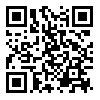BibTeX | RIS | EndNote | Medlars | ProCite | Reference Manager | RefWorks
Send citation to:
URL: http://jeche.ir/article-1-329-en.html
2- Department of Psychology, Imam Khomeini International University, Qazvin, Iran
Background and Aim: Aggression in children can serve as a predictor of future behavioral problems such as social withdrawal, poor academic performance, interpersonal difficulties, and even more severe psychological issues during adolescence. This study aimed to examine the relationship between mothers’ emotional intelligence and aggressive behaviors in preschool children, with the mediating role of children's emotion regulation. Research Methods: The study employed a correlational design with path analysis modeling, and the data were analyzed using AMOS software (version 24). The statistical population consisted of all preschool children in Tehran in the year 2024, from which a sample of 235 participants was selected through convenience sampling. The research instruments included the Schutte Emotional Intelligence Scale (1996), the Emotion Regulation Checklist by Shields and Cicchetti (1997), and the Aggression Questionnaire (parent version) developed by Vahedi and colleagues (2008). Results: Data analysis indicated a good fit between the proposed model and the empirical data. The findings revealed significant relationships between maternal emotional intelligence and child aggression, as well as between children's emotion regulation and their aggressive behaviors. Furthermore, the mediating role of children's emotion regulation in the relationship between maternal emotional intelligence and child aggression was confirmed. Discussions: The results of this study highlight the importance of considering both preschool children's emotion regulation and maternal emotional intelligence, particularly for children who struggle with aggression control. These findings carry important implications for counselors and families.
Received: 2025/03/16 | Accepted: 2025/09/4 | Published: 2025/09/20
| Rights and permissions | |
 |
This work is licensed under a Creative Commons Attribution-NonCommercial 4.0 International License. |




